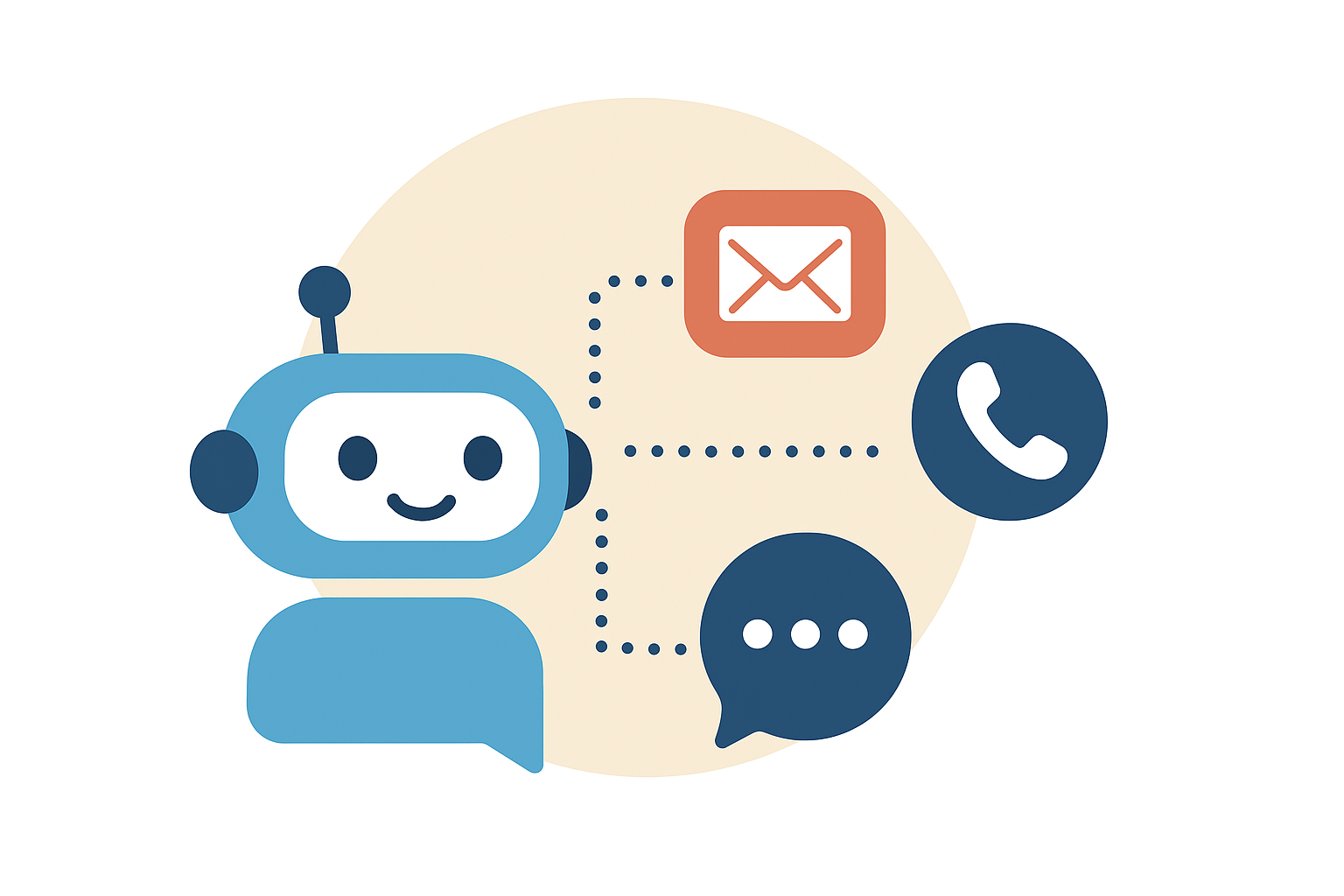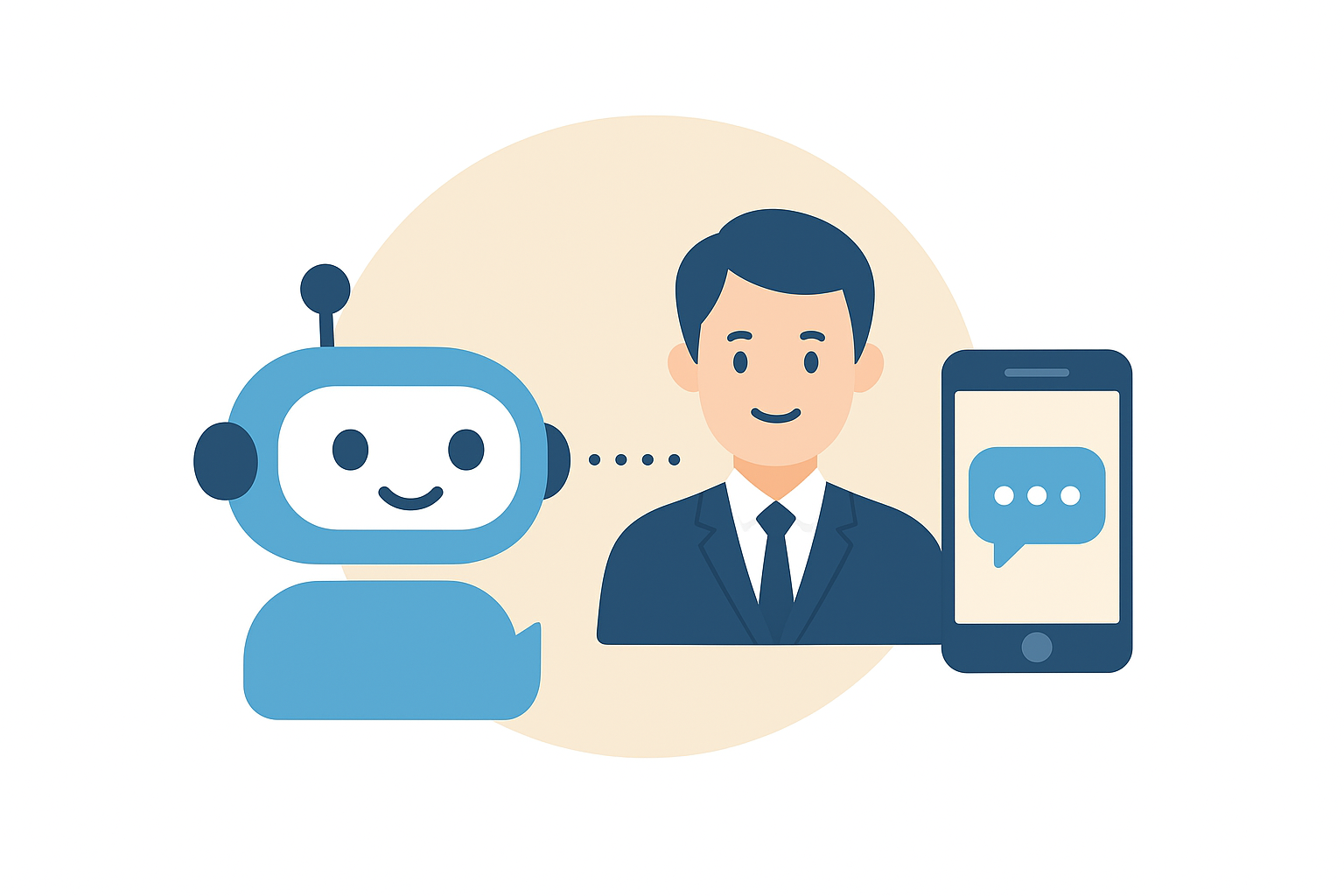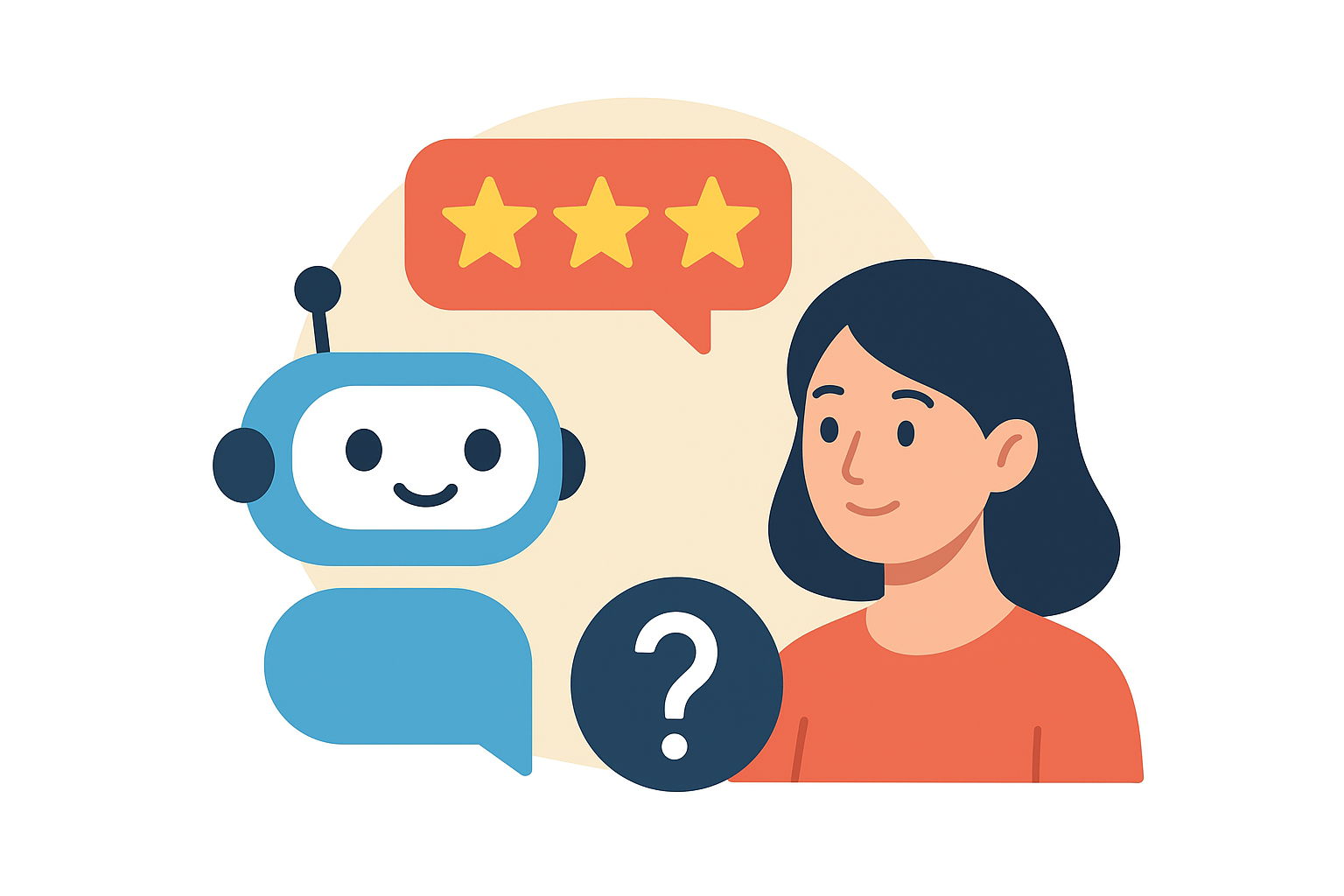The modern business landscape is defined by speed, personalization, and customer-centricity. In this environment, every interaction matters, and the way businesses respond to customer needs plays a decisive role in building trust and long-lasting relationships. While traditional support methods such as emails and call centers once dominated the service industry, they often fall short in today’s fast-paced world where customers expect instant answers, seamless assistance, and round-the-clock availability. This is where the Feedback and Customer Support Chatbot emerges as a groundbreaking innovation. By combining real-time communication with automated feedback collection, these chatbots not only resolve customer issues but also help organizations understand consumer expectations, preferences, and pain points more effectively.
Introduction
The rise of artificial intelligence has reshaped countless industries, but one of the most significant transformations has occurred in customer service. The Feedback and Customer Support Chatbot is no longer just a futuristic idea but an essential tool that companies across the globe are implementing to maintain their competitive edge. These intelligent systems bring together AI, natural language processing (NLP), and machine learning to provide personalized assistance, gather valuable insights, and ensure customer satisfaction.
By enabling businesses to interact with clients in real-time, offer instant resolutions, and simultaneously capture feedback, these chatbots redefine what it means to deliver customer-centric support. For organizations like Engagerbot, integrating feedback-driven chatbot systems creates a dual advantage: reducing operational costs while improving the quality of service and customer engagement. In an age where customer experience can make or break a brand, adopting Feedback & Customer Support Chatbots is not just an option—it is a necessity.
The Shift from Traditional Support to AI-Powered Assistance
Customer support has gone through a dramatic evolution. Traditionally, businesses relied heavily on call centers, help desks, and email services to resolve customer queries. While these methods were functional, they often left customers frustrated due to long waiting times, delayed responses, and inconsistent quality of service. With the rise of instant messaging apps and social media, customers began expecting faster, more accessible ways to connect with businesses.
This expectation paved the way for AI-powered chatbots, which have now become central to modern customer support strategies. Unlike human agents, chatbots can respond instantly, operate 24/7, and handle multiple queries simultaneously without compromising quality. This shift has not only reduced pressure on human support teams but has also improved efficiency across industries. Businesses that adopt chatbots benefit from scalability, cost reduction, and improved customer satisfaction, positioning themselves as forward-thinking and customer-focused.
What Makes Feedback & Customer Support Chatbots Unique?
Unlike general-purpose chatbots that only provide basic assistance or FAQs, Feedback & Customer Support Chatbots are specifically designed to combine query resolution with structured feedback collection. They don’t just answer questions—they actively listen, learn, and gather information that can shape future business strategies. This unique functionality makes them more than just support tools; they are data-driven assets that provide valuable insights into customer satisfaction and service quality.
Their design incorporates advanced algorithms that can detect sentiment, analyze customer tone, and adapt responses accordingly. For example, if a customer expresses frustration, the chatbot can escalate the issue to a live agent while also recording the sentiment for review. At the same time, they can prompt users to leave ratings or comments about their interaction, ensuring that companies consistently gather fresh, actionable feedback. This blend of support and insight generation makes them indispensable for businesses seeking long-term growth and improvement.
Why Instant Customer Support Matters More Than Ever
In a digital-first world, patience has become a scarce commodity. Customers no longer tolerate long hold times or delayed responses. They expect immediate solutions at their fingertips. When businesses fail to deliver fast service, it directly impacts customer loyalty and retention. Statistics show that even a few minutes of delay can cause customers to abandon a service or product in search of alternatives.
Feedback and Customer Support Chatbots address this problem by ensuring instant communication at any time of day. They can provide troubleshooting guides, process refund requests, or share product information without requiring a human agent. This not only enhances customer satisfaction but also builds trust, as users feel valued when their concerns are addressed quickly. In industries such as e-commerce, healthcare, travel, and banking, where real-time support is critical, instant chatbot responses can significantly improve customer retention and brand reputation.
Enhancing Feedback Collection with Smart Automation
Collecting feedback has always been a challenge for businesses. Traditional surveys and emails often go unanswered, resulting in low response rates and unreliable insights. Customers generally avoid lengthy forms, and by the time responses are collected, the information may already be outdated.
Chatbots revolutionize this process by integrating feedback requests into real-time conversations. After resolving a query, they can politely ask customers to share their experience, rate the support, or answer a short survey within the chat interface. Because this happens in the moment, customers are more likely to respond honestly and accurately. The data collected is instantly analyzed, categorized, and stored for future improvements. By combining support and feedback seamlessly, businesses gain access to a continuous loop of insights, enabling them to refine their services and maintain higher levels of satisfaction.
The Role of AI and Machine Learning in Chatbot Intelligence
Artificial intelligence and machine learning are the backbone of modern Feedback & Customer Support Chatbots. Unlike static systems, these chatbots learn from every interaction. They analyze customer behavior, preferences, and frequently asked questions, gradually improving their ability to provide relevant and accurate responses. Machine learning enables chatbots to recognize patterns, predict user needs, and even detect emotions through sentiment analysis.
This intelligence allows chatbots to go beyond scripted replies, offering personalized solutions tailored to individual customers. For instance, if a returning customer inquires about a product, the chatbot can reference past purchases, highlight upgrades, or recommend related services. Over time, this creates a more human-like and engaging interaction that builds stronger relationships between businesses and their audiences. AI-driven intelligence also ensures that chatbots remain scalable, capable of managing thousands of interactions simultaneously without compromising quality.
Building Personalized Customer Experiences with Chatbots
Personalization has become the foundation of modern customer service, and customers now expect brands to recognize their preferences, history, and unique needs. A Feedback and Customer Support Chatbot is not just about providing generic responses; it is about delivering a tailored experience that makes customers feel valued. By leveraging stored data, purchase histories, and behavioral insights, chatbots can respond to queries in a more customized manner, much like a human agent but with greater efficiency and consistency.
For example, if a repeat customer interacts with a chatbot, the system can instantly recall their previous interactions, highlight their purchase history, and suggest solutions based on past issues. This makes the interaction smoother and more engaging, while also saving time for the user. In addition, these bots can be programmed to recommend products, share personalized offers, or provide updates that are relevant to the customer’s journey. Personalization in chatbot conversations builds trust, creates loyalty, and significantly enhances the overall customer experience.
Furthermore, feedback collection can also be personalized. Instead of sending generic surveys, chatbots can ask context-specific questions based on the interaction. This ensures that the feedback is relevant, meaningful, and valuable for businesses. By combining personalization with real-time support, businesses transform customer interactions into opportunities for deeper engagement, turning one-time buyers into lifelong advocates.
Integrating Chatbots with Multichannel Support Systems

In today’s connected world, customers interact with businesses through multiple channels such as websites, mobile apps, social media platforms, and even messaging apps like WhatsApp or Messenger. Relying on a single platform for support limits customer convenience, as users expect seamless assistance wherever they are. A modern Feedback & Customer Support Chatbot must therefore be integrated into multichannel support systems to ensure a consistent and unified experience.
By integrating chatbots across platforms, businesses allow customers to start a conversation on one channel and continue it on another without losing context. For instance, a customer might ask a product-related question on Facebook Messenger and later continue the same query via the website chatbot. This continuity not only improves customer satisfaction but also demonstrates that the business values convenience and accessibility.
Moreover, multichannel integration enhances data collection. Since chatbots gather interactions across platforms, businesses gain a 360-degree view of customer behavior. This allows them to better understand preferences, identify recurring issues, and make strategic decisions based on comprehensive insights. The ability to manage support across channels also reduces the workload for human agents, as repetitive queries are handled automatically, leaving complex cases to skilled professionals. In essence, multichannel integration ensures that businesses meet customers where they are, delivering a seamless and efficient service experience.
Boosting Efficiency and Reducing Operational Costs
Operational efficiency is one of the most compelling reasons businesses adopt chatbots. Maintaining a large customer service team can be expensive, requiring salaries, training, and infrastructure. Even with a skilled team, human limitations mean that businesses may struggle to handle large volumes of queries during peak hours. This often results in long waiting times and frustrated customers.
Feedback and Customer Support Chatbots drastically reduce these challenges by automating repetitive tasks, handling multiple queries simultaneously, and working 24/7 without breaks. They answer FAQs, guide customers through troubleshooting steps, process orders, and even handle feedback collection without requiring additional manpower. By reducing the need for a large support staff, businesses save on operational costs while still maintaining high service standards.
Additionally, efficiency is improved because chatbots reduce human error. Where agents may occasionally overlook details due to fatigue or stress, chatbots consistently follow predefined workflows, ensuring accurate responses every time. The cost-saving potential combined with increased accuracy makes chatbots an invaluable investment. Instead of viewing them as replacements for human agents, businesses can treat them as strategic partners that free up resources, allowing human teams to focus on complex or sensitive issues that require empathy and judgment.
Gathering Actionable Insights through Feedback Analysis
Collecting feedback is only the first step—turning that feedback into actionable insights is where businesses find true value. A Feedback and Customer Support Chatbot not only gathers input but also processes and organizes the data in a way that is meaningful for decision-makers. Using AI and sentiment analysis, these chatbots can categorize customer responses into themes such as satisfaction, dissatisfaction, or feature requests.
For example, if multiple customers complain about the same issue, the chatbot can flag it as a recurring problem and escalate it to the relevant department. Similarly, if customers consistently praise a particular feature, the company can use that insight in marketing campaigns to highlight strengths. This immediate access to structured data empowers businesses to take proactive steps toward improvement rather than waiting until issues become widespread.
The automation of feedback analysis also ensures speed and accuracy. Manual review of feedback can take weeks and may overlook subtle insights, whereas chatbots can process large volumes of data instantly. These actionable insights not only improve customer service strategies but also influence product development, pricing decisions, and long-term business planning. By treating feedback as a strategic resource rather than an afterthought, businesses gain a competitive advantage and demonstrate a genuine commitment to customer satisfaction.
Improving Customer Retention and Loyalty
Customer retention is often more valuable than acquiring new customers, as loyal clients provide consistent revenue and advocate for the brand. However, retaining customers requires consistent engagement, timely support, and an understanding of their evolving needs. Feedback and Customer Support Chatbots play a crucial role in building loyalty by ensuring that customers feel heard, supported, and appreciated throughout their journey.
By providing instant support, businesses show customers that their time is respected. By collecting and acting on feedback, they demonstrate that customer opinions matter. Over time, these actions create a sense of trust and belonging. Furthermore, personalized interactions make customers feel valued as individuals rather than just another sale. This emotional connection significantly strengthens brand loyalty.
Loyal customers are also more likely to recommend the brand to others, creating organic growth opportunities. When users share their positive experiences of fast responses, helpful interactions, and feedback-driven improvements, they become brand ambassadors. Thus, chatbots indirectly enhance word-of-mouth marketing while directly contributing to customer satisfaction. By investing in chatbot technology, businesses ensure long-term relationships that extend far beyond individual transactions.
Addressing Customer Pain Points with Proactive Chatbots
One of the most powerful features of Feedback and Customer Support Chatbots is their ability to be proactive rather than reactive. Traditional support systems often wait for customers to encounter problems before offering assistance. However, modern chatbots can anticipate issues, provide proactive solutions, and prevent frustration before it occurs.
For instance, if a customer is browsing a website for an extended period without completing a purchase, the chatbot can initiate a conversation to ask if assistance is needed. If a recurring technical issue is detected in the system, the chatbot can notify users and provide troubleshooting steps before complaints begin flooding in. Proactive engagement demonstrates attentiveness and commitment to customer well-being, which significantly improves brand reputation.
Additionally, proactive feedback collection ensures that businesses identify pain points early. Rather than waiting for negative reviews or escalated complaints, chatbots can ask customers about their experience immediately and provide real-time solutions. This approach not only reduces dissatisfaction but also turns potential negative experiences into positive ones. By addressing pain points before they escalate, businesses maintain customer trust and create smoother user journeys.
The Role of Chatbots in Managing High-Volume Queries
Every business, especially those operating at scale, faces the challenge of managing high volumes of customer queries. During peak hours, product launches, seasonal sales, or technical outages, the number of inquiries can skyrocket, overwhelming even the most experienced customer support teams. Relying solely on human agents in such scenarios leads to long waiting times, customer frustration, and missed opportunities.
This is where Feedback and Customer Support Chatbots demonstrate their true value. Unlike human staff, chatbots are capable of handling thousands of queries simultaneously without compromising on speed or quality. They can filter routine issues, provide instant resolutions, and escalate only the most complex problems to human representatives. This ensures that customers get timely responses while human agents can focus on sensitive or specialized cases.
Moreover, when integrated with customer databases and knowledge management systems, chatbots become more powerful. They can retrieve order statuses, answer billing questions, share shipping updates, and even troubleshoot technical problems instantly. By handling high volumes efficiently, businesses ensure smooth operations and maintain customer trust even during periods of increased demand. This scalability makes chatbots indispensable for industries like retail, telecom, travel, and banking, where fluctuations in customer inquiries are frequent and unavoidable.
Multilingual Support for Global Audiences
In today’s interconnected world, businesses are no longer limited to serving local customers. E-commerce platforms, SaaS providers, and service-based companies cater to global audiences across multiple time zones and languages. However, delivering effective customer support to such diverse audiences is often challenging due to language barriers and cultural differences. Hiring multilingual staff can be costly and logistically difficult, making scalability nearly impossible.
Feedback and Customer Support Chatbots solve this issue by offering multilingual support powered by natural language processing. Advanced AI-driven bots can understand and respond in multiple languages, ensuring that customers receive assistance in their preferred tongue. Whether it’s English, Spanish, French, Arabic, or regional dialects, these chatbots can adapt instantly. This inclusivity enhances customer experience, removes communication barriers, and makes businesses more accessible to global markets.
Multilingual bots also improve feedback collection by ensuring customers can express their opinions in a language they are comfortable with. Since language often affects clarity and accuracy, allowing customers to provide feedback in their native tongue results in more authentic and valuable insights. In a global economy where customer experience defines success, multilingual chatbots serve as essential tools for bridging gaps and fostering stronger international relationships.
Ensuring Data Security and Privacy in Chatbot Interactions
As chatbots handle sensitive customer information such as personal details, payment data, and account queries, data security and privacy become critical concerns. Customers trust businesses to protect their information, and any breach can severely damage brand reputation. Therefore, integrating robust security protocols into chatbot systems is essential.
Modern Feedback and Customer Support Chatbots come equipped with encryption technologies, secure APIs, and compliance frameworks that adhere to data protection laws such as GDPR, HIPAA, and CCPA. This ensures that all customer interactions remain confidential and protected from unauthorized access. Additionally, chatbots can be programmed to verify user identities before disclosing sensitive information, reducing the risk of fraud or misuse.
Transparency also plays a key role in maintaining trust. Informing users that their data is being handled securely and clarifying how feedback will be used helps establish credibility. Furthermore, anonymizing collected feedback ensures that customers feel comfortable sharing honest opinions without fear of exposure. By making security and privacy top priorities, businesses not only protect themselves legally but also build long-lasting trust with customers who feel safe engaging with the brand.
The Future of Feedback & Support Chatbots

The evolution of Feedback and Customer Support Chatbots is only beginning. As artificial intelligence, machine learning, and natural language processing continue to advance, chatbots will become even more intelligent, intuitive, and human-like. In the near future, chatbots will be capable of understanding context at a deeper level, detecting emotions with greater accuracy, and even predicting customer needs before they are expressed.
Emerging technologies such as voice-enabled chatbots, augmented reality (AR), and virtual reality (VR) will further enhance customer interactions. Imagine a scenario where a customer uses a VR headset to troubleshoot an appliance while a chatbot provides step-by-step guidance in real time. Similarly, AI-driven predictive analysis will allow chatbots to recommend proactive solutions before a customer encounters a problem.
In terms of feedback, advanced chatbots will integrate directly with predictive analytics tools to identify patterns and forecast future trends. This will allow businesses to anticipate market shifts, prepare solutions in advance, and maintain a strong competitive edge. The future belongs to businesses that adopt these evolving technologies and use them to craft highly personalized, efficient, and memorable customer experiences.
Common Misconceptions about Chatbots
Despite their growing popularity, chatbots are often misunderstood. One common misconception is that they are designed to replace human agents entirely. In reality, chatbots are meant to complement human support by handling repetitive tasks and freeing up time for agents to focus on complex or emotional issues. Another misconception is that chatbots provide robotic and impersonal interactions. However, with advancements in AI and NLP, modern chatbots are capable of engaging in natural, personalized, and empathetic conversations.
Another myth is that chatbots are only useful for large corporations. On the contrary, small and medium-sized businesses also benefit from chatbot technology, as it helps them provide professional support without incurring massive staffing costs. Some also believe that feedback collected through chatbots is unreliable. In truth, chatbot-driven feedback is often more accurate and timely than traditional surveys, since it is gathered in the moment of interaction.
By addressing these misconceptions, businesses can better understand the true potential of chatbots and implement them strategically. Instead of seeing them as replacements or gimmicks, they should be viewed as partners in customer engagement and feedback collection, capable of elevating service standards across industries.
Case Studies: Real-World Impact of Chatbots on Businesses
Across industries, Feedback and Customer Support Chatbots have demonstrated measurable benefits. In e-commerce, chatbots have helped retailers reduce cart abandonment by assisting customers in real time with product queries, shipping details, and return policies. This not only improves conversion rates but also enhances customer satisfaction.
In the banking sector, chatbots have revolutionized customer service by handling account inquiries, transaction histories, and fraud detection alerts. By providing instant responses, they reduce branch visits and call center congestion, saving costs while improving convenience for clients. In healthcare, chatbots help patients schedule appointments, answer health-related queries, and collect post-consultation feedback, ensuring smoother patient journeys.
Another notable example is travel and hospitality, where chatbots assist with bookings, itinerary updates, and cancellation requests while simultaneously gathering feedback about customer experiences. Businesses that adopt chatbot solutions often report increased customer loyalty, reduced operational expenses, and improved data-driven decision-making. These real-world successes highlight the transformative power of chatbots and reinforce why they are becoming a necessity across industries rather than a luxury.
Conclusion
The digital era has redefined customer expectations, demanding instant responses, seamless experiences, and continuous engagement. Businesses that fail to adapt risk losing relevance, while those that embrace innovations like Feedback and Customer Support Chatbots position themselves as leaders in customer experience. These intelligent systems not only streamline support but also transform feedback collection into a powerful tool for growth. By merging automation with personalization, they allow businesses to operate more efficiently, serve global audiences, and deliver value beyond traditional customer service models.
For organizations such as Engagerbot, implementing feedback-driven chatbot systems represents a strategic investment in the future of customer engagement. By bridging the gap between real-time assistance and actionable insights, chatbots empower businesses to build trust, loyalty, and long-term success. As technology continues to evolve, these systems will only become more advanced, intuitive, and integral to customer journeys. The future of customer experience is here, and chatbots are leading the way.

